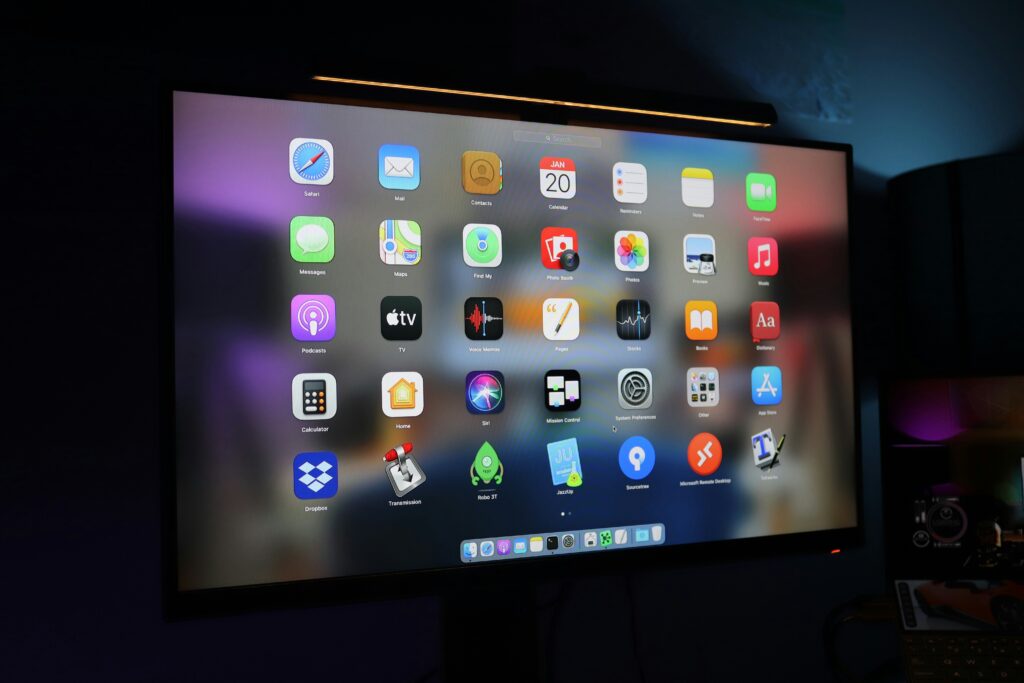In 2025, virtual escape rooms are captivating audiences worldwide, offering immersive, interactive experiences for team-building, social gatherings, and entertainment. By harnessing artificial intelligence (AI), you can profit from AI tools for virtual escape rooms by designing and hosting unique, puzzle-filled events that delight clients. This guide provides a comprehensive roadmap to launch a profitable virtual escape room business using AI, detailing platforms, step-by-step procedures, marketing strategies, and tips to thrive in this exciting niche. Whether you’re a creative entrepreneur or a side hustler, this opportunity blends fun, technology, and income potential. Let’s unlock the secrets to your AI-powered escape room success!
Table of Contents
Why Virtual Escape Rooms to Profit from AI Tools?
The global escape room market is projected to grow at a CAGR of 14.8% from 2024 to 2030 (Market Research Future, 2024), with virtual formats gaining traction due to their accessibility and scalability. AI tools enable you to craft engaging narratives, puzzles, and visuals quickly, making it an ideal way to profit from AI tools for virtual escape rooms. This niche appeals to corporations, friend groups, and educators, offering high earning potential with low overhead costs. With AI, you can create tailored experiences that keep participants coming back for more.

Benefits of Using AI for Virtual Escape Rooms
- Rapid Creation: AI generates puzzles, storylines, and themes in minutes.
- Customization: Tailor rooms to client preferences (e.g., mystery, sci-fi).
- Low Cost: No physical space or props required, just digital tools.
- Engagement: AI-driven visuals and narratives enhance player immersion.
- Scalability: Host multiple sessions daily for global audiences.
Platforms to Profit from AI Tools for Virtual Escape Rooms
To launch your virtual escape room business, you’ll need AI tools for content creation, hosting, and promotion. Here are the top platforms with verified links:
- ChatGPT: An AI tool to generate escape room storylines, puzzles, and dialogue.
- Eventbrite: A platform to promote and sell tickets for your virtual escape room events.
- Zoom: A reliable video conferencing tool to host interactive escape room sessions.
- Canva: A design tool with AI features to create promotional graphics, puzzle visuals, and clue cards.
- Google Forms: A free tool to collect client preferences and feedback.
Step-by-Step Procedure to Profit from AI Tools
Follow these actionable steps to start your virtual escape room business and begin earning in 2025:
Step 1: Master AI Tools for Escape Room Design
- Sign up for ChatGPT (free tier available) and explore its capabilities for storytelling.
- Use ChatGPT to practice creating escape room narratives and puzzles (e.g., “Design a 30-minute virtual escape room themed around a haunted mansion with 5 puzzles”).
- Watch Zoom tutorials on YouTube to learn how to use breakout rooms and polls for interactive gameplay.
- Learn Canva’s AI design features to create clue cards and promotional visuals.
- Consider ChatGPT Plus ($20/month) for advanced prompt capabilities if needed.
Time Needed: 4–6 hours to learn basics.
Step 2: Set Up Your Eventbrite Listings
- Create an Eventbrite account and list your virtual escape room as an event titled “AI-Powered Virtual Escape Room Adventure” ($15–$60 per attendee or $200–$600 per group).
- Write a compelling description: “Dive into a thrilling virtual escape room powered by AI! Solve puzzles, uncover secrets, and bond with your team in a 60-minute adventure. Perfect for corporate events, birthdays, or fun with friends!”
- Use Canva to design vibrant event banners showcasing themed visuals (e.g., a pirate ship or futuristic lab).
- Offer tiered pricing: Individual tickets ($15–$30), Group (4–8 players, $100–$200), Corporate (10–20 players, $300–$600).
- Set up Eventbrite’s payment system or link PayPal for secure transactions.
Time Needed: 3–5 hours for setup.
Step 3: Market Your Escape Rooms
- Promote your Eventbrite listings on X, LinkedIn, and Instagram with hashtags like #VirtualEscapeRoom, #AITools, and #ProfitFromAITools.
- Share engaging content, such as a 15-second video teaser of your escape room’s theme or a puzzle challenge to spark interest.
- Join team-building or gaming communities on Reddit (e.g., r/escaperooms) to share tips and link your events subtly.
- Offer a free demo session for influencers or HR managers to generate buzz and reviews.
- Run a limited-time promotion (e.g., 20% off group bookings) to attract early sign-ups.
Time Needed: Ongoing, 1–2 hours daily.
Step 4: Design and Host Escape Rooms
- Collect client details via Google Forms: group size, preferred theme (e.g., detective, fantasy), and difficulty level.
- Use ChatGPT to generate a 60-minute escape room script, including a storyline, 5–7 puzzles (e.g., riddles, logic games), and solutions.
- Create visual clues (e.g., locked chest image) and puzzle cards in Canva for sharing via Zoom’s screen-sharing feature.
- Host the event on Zoom, using breakout rooms for team collaboration and polls for interactive choices (e.g., “Which door to open?”).
- Deliver a post-event feedback form via Google Forms and a thank-you email with a discount for future bookings.
- Aim for a 1–2 day preparation per event, with 1-hour hosting time.
Time Needed: 3–5 hours per event (prep + hosting).
Step 5: Scale Your Business
- Offer themed packages (e.g., “Halloween Horror” or “Sci-Fi Adventure”) to attract repeat clients.
- Create reusable puzzle templates with ChatGPT to streamline design for similar themes.
- Build a website on Wix to showcase your escape rooms and accept direct bookings.
- Hire a co-host via Fiverr to manage larger groups or multiple sessions daily.
- Expand to hybrid events (virtual + in-person) for premium corporate clients.
Time Needed: Varies based on scale.
See these 10 unique ideas.
Potential Earnings and Time Commitment
- Pricing: Charge $15–$30 per individual ticket, $100–$200 for small groups (4–8 players), $300–$600 for corporate groups (10–20 players).
- Monthly Events: Start with 5–10 events (beginner) and scale to 20–30 (experienced).
- Earnings:
- Beginner: $500–$2,000/month (5–10 small group events at $100–$200).
- Intermediate: $3,000–$8,000/month (10–20 mixed events).
- Advanced: $10,000–$18,000/month (20–30 events with corporate packages).
- Time Commitment: 15–20 hours/week for 5–10 events, scaling to 40–60 hours for 20+ events.
Tips to Succeed and Profit from AI Tools for Virtual Escape Rooms
- Craft Unique Themes: Offer niche themes like “Time Travel Paradox” or “Arctic Expedition” to stand out.
- Test Puzzles: Run beta sessions with friends to ensure puzzles are engaging and solvable.
- Leverage X Trends: Monitor X for popular themes (e.g., superhero-inspired rooms) to align with audience interests.
- Enhance Immersion: Use Canva to create atmospheric visuals and background music via Zoom.
- Build Relationships: Follow up with corporate clients to secure recurring team-building bookings.
- Ensure Smooth Hosting: Test Zoom settings (e.g., audio, breakout rooms) before each event to avoid technical glitches.
Challenges and How to Overcome Them
- Challenge: High competition in virtual event spaces.
Solution: Differentiate with AI-crafted, highly thematic rooms and exceptional customer service. - Challenge: Designing balanced puzzles.
Solution: Use ChatGPT to generate varied puzzles and adjust difficulty based on client feedback. - Challenge: Technical issues during events.
Solution: Provide a backup platform (e.g., Microsoft Teams) and test connections in advance. - Challenge: Slow initial bookings.
Solution: Run targeted Instagram ads ($20–$50 budget) targeting team-building organizers.
Real-World Example
In 2024, a UK-based freelancer, “EscapeAIre,” launched a virtual escape room business on Eventbrite using ChatGPT and Zoom. By offering “Murder Mystery” and “Space Station” themes for corporate teams, they grew to 12 events monthly within six months, earning £3,000 ($3,800)/month. In 2025, they added educational escape rooms for schools, reaching £7,000 ($8,900)/month. Their success came from LinkedIn outreach to HR managers, polished Canva visuals, and a 48-hour turnaround for custom designs.
Launch Your Virtual Escape Room Business Now!
Virtual escape rooms are a thrilling, profitable way to profit from AI tools for virtual escape rooms in 2025. With ChatGPT, Zoom, and Eventbrite, you can start hosting unforgettable experiences in days. Sign up for Eventbrite, design your first room, and promote it today. Share your journey in the comments or connect with me on LinkedIn for more AI-driven business tips. Ready to create puzzles that captivate? Your AI-powered adventure begins now!

